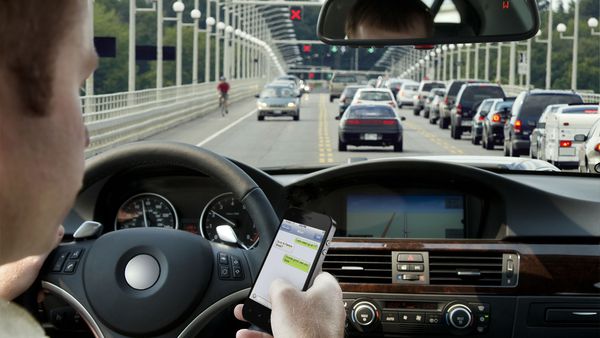Under Distracted Driving Bill, Cellphone Use While Driving Could Result in a Suspended License
by Scott McClallen
The Michigan Senate passed bills aiming to require hands-free cellphone use while driving.
The goal is to reduce distracted driving and, therefore, fatalities.
House Bills 4250, 4251, and 4252 aim to prohibit holding or using a cell phone while driving a vehicle, including using it for texts, calls, videos, and on social network sites. The House already passed the bills.
The bills would provide exceptions such as hands-free use, emergency use, using a device’s navigation feature as long as the information isn’t entered by hand, or using a single button press, tap, or swipe to activate or deactivate a device or to select a name or phone number.
Violations could result in a civil fine, community service or points assessed on the driver’s driving record, a mandatory driver’s course, or even a license suspension.
House Bill 4251 would require the secretary of state to suspend an individual’s driver’s license for a range of time upon violation conviction if that person has a commercial learner’s permit.
Current law prohibits a driver from texting and driving in a moving vehicle.
The proposed sanctions for a person who violates the law while operating a vehicle other than a school bus or commercial vehicle would be the following:
- For a first violation, pay a $100 civil fine, perform 16 hours of community service, or both.
- For a subsequent violation, pay a $250 civil fine, perform 24 hours of community service, or both.
- Suppose an individual is responsible for three or more civil infractions for violations within three years. In that case, a court will order the person to complete a driver improvement course within a reasonable time as determined by the court.
A civil fine would be doubled if while violating the above rules, the individual was involved in an accident where they were at fault.
All revenue received would be deposited in the Basic Driver Improvement Course Fund and funds could only be used to pay the costs of administering the program.
Three and a half years after the bill’s effective date, the Michigan State Police would have to submit a report to the Senate majority leader, the House speaker, and the governor that includes the number of citations given for violations, the race and ethnicity of the individuals given those citations, and the number of vehicle crashes, serious injuries, and deaths caused by those violations.
In 2021, The Michigan State Police say there were 282,640 traffic crashes, of which 1,068 were fatal.
The bill moves to the desk of Gov. Gretchen Whitmer.


Comments are closed, but trackbacks and pingbacks are open.